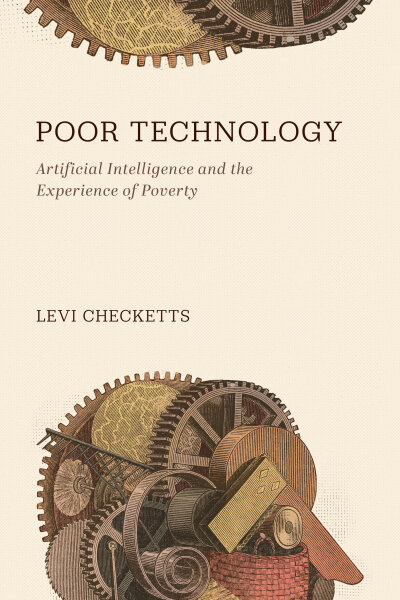Levi Checketts's unique and poignant view of technology--AI in particular--and the poor is fascinating. Checketts uses the experience of poverty to question the narratives of technology and to create a hermeneutic of poverty to pursue the ethical problems specific to AI. In the era of AI, orchestrated by tech capitalism, the concern for the poor is the moral apparatus of twenty-first-century global ethics, and this book will be one of the must-reads.
In recent years, artificial intelligence (AI) has moved in popular discourse from the purview of science-fiction imaginings to the key financial sector of the twenty-first century. As world powers, trillion-dollar companies, and public intellectuals emphasize the importance of AI, the general concerns people raise relate to economic movement, control, bias, and safety.
This book adds a further concern, namely the way our approach to AI reinforces assumptions about dignity and personhood tied to the sort of thinking that is characteristic of bourgeois capitalists. The experience of poverty reveals that people who are poor do not think the same way as the upper classes--their experience of the world must be understood through the reality of survival within resource-scarce settings and the attendant domination and discrimination that come with being poor. These experiences do not fit well with the "ideal choice" selection model that underlies AI modeling, and numerous failures of AI to help the poor demonstrate that those who benefit primarily from AI are those who already live well.
As a result, the fervor surrounding AI often serves to dehumanize the poor by eliminating employment opportunities, automating social work, reinforcing biases, and prioritizing profit over stability. Worst of all, however, AI functions to satisfy a psychological need for us to have "others" against whom we can distinguish ourselves without having to feel guilty about the reality of the struggle of the poor. Taking seriously the theological perspective of the "preferential option for the poor," this work contends that to avoid relegating poor people to nonhuman status, we must be willing to put aside the fantasy that AI is "intelligent" and focus rather on the all-too-human embodied reality of the poor.
- Publisher Fortress Press
- Format Hardcover
- ISBN 9781506482316
- eBook ISBN 9781506482323
- Dimensions 6.25 x 9.25
- Pages 281
- Publication Date January 23, 2024
Endorsements
Sophia Park, professor emerita of religious studies and philosophy, Holy Names University
Checketts offers a searing critique of both AI enthusiasts and doomsayers, arguing that their utopian and dystopian futures leave the poor and marginalized of the world invisible and voiceless. He argues that AI optimizes capitalist, first-world, patriarchal, and instrumental values, to which he contrasts an alternative technology framed from the worldview and lifeworld of the poor and oppressed--a "poor AI" that enhances rather than transcends our common humanity. It is a fascinating and informative read, especially relevant in light of the recent controversies around the need to regulate generative AI such as ChatGPT, as well as a timely critique of the millennial mirage of "effective altruism."
Timothy Clancy, SJ, associate professor of philosophy, Gonzaga University
Poor Technology is a unique and important contribution to the landscape of technology studies for several reasons, but two are crucial: First, its analysis of artificial intelligence focuses on the experiences of poor people, which often go unnoticed in other studies of that technology. Second, it offers a nuanced Christian perspective on artificial intelligence, work, and our conceptions of the less privileged. We are so lucky to have Checketts's voice today.
Lee Vinsel, associate professor of science, technology, and society, Virginia Tech, and coauthor of The Innovation Delusion: How Our Obsession with the New Has Disrupted the Work That Matters Most
Poor Technology is a forceful provocation to contemporary AI narratives, whether utopian or dystopian. In clear and illuminating prose, Checketts exposes our reluctance to confront the uncomfortable relationship between our visions of the machine "other" and those of us who have always and everywhere been other: the poor.
Shannon Vallor, Baillie Gifford Professor in the Ethics of Data and Artificial Intelligence, University of Edinburgh, and author of Technology and the Virtues: A Philosophical Guide to a Future Worth Wanting
